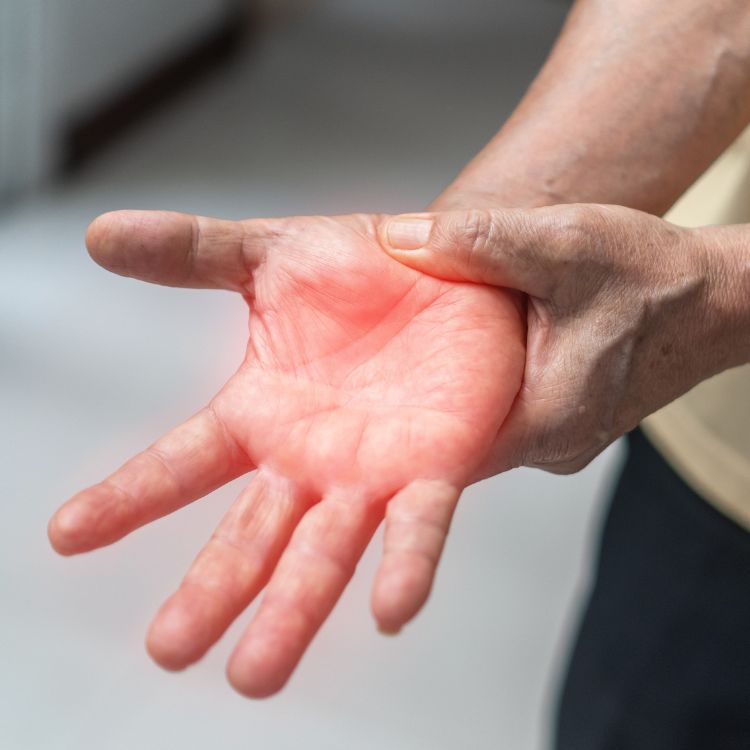Symptoms of Peripheral Neuropathy
Peripheral neuropathy symptoms can vary depending on the type and severity of nerve damage. However, common symptoms include:
- Numbness and Tingling: Often starting in the hands or feet, these sensations may spread up the limbs over time.
- Sharp, Burning, or Electric Pain: Nerve damage can cause spontaneous pain or increased sensitivity to touch.
- Muscle Weakness: Damaged nerves may struggle to send signals to the muscles, leading to difficulty walking, balance issues, and loss of coordination.
- Loss of Reflexes: Affected nerves may impair reflex responses, increasing the risk of falls.
- Temperature and Touch Sensitivity: Some individuals may experience heightened sensitivity to hot or cold temperatures, while others may feel decreased sensation.
- Autonomic Symptoms: In severe cases, nerve damage may affect the autonomic nervous system, leading to symptoms like dizziness, changes in blood pressure, digestive issues, or excessive sweating.
If you experience persistent numbness, pain, or weakness, it’s important to seek medical evaluation. Early diagnosis can help slow the progression of the disease and improve management strategies.
Treatment Options for Peripheral Neuropathy
While there is no single cure for peripheral neuropathy, several treatments are available to help manage symptoms, alleviate pain, and improve quality of life. Treatment depends on the underlying cause and severity of the condition.
Pharmacologic Therapy
Medications are often the first line of treatment for neuropathic pain. Some of the most commonly prescribed drugs include:
- Membrane-Stabilizing Medications: These medications, such as Cymbalta (duloxetine), Elavil (amitriptyline), Lyrica (pregabalin), Tramadol, and Neurontin (gabapentin), work by calming irritated nerves and reducing pain signals sent to the brain. While they can be highly effective, they may also come with side effects that limit their use for some patients.
- Pain Relievers: Nonsteroidal anti-inflammatory drugs (NSAIDs) may offer mild relief for some individuals, but they are not always effective for nerve pain. In severe cases, opioids may be prescribed, though they are generally not the preferred treatment due to their risk of dependence and side effects.
While medications can help manage pain, they do not prevent the progression of peripheral neuropathy. Therefore, alternative treatments are often considered for long-term relief.
Advanced Interventional Therapies
For patients whose symptoms do not improve with medications, interventional therapies may offer a more effective long-term solution.
Spinal Cord Stimulation (SCS)
Louisiana Pain Specialists offers spinal cord stimulation (SCS), an advanced therapy that has been highly effective in treating patients with painful peripheral neuropathy. Often described as a “pacemaker for pain management,” SCS involves implanting a small device near the spine that delivers mild electrical impulses. These impulses interfere with pain signals before they reach the brain, significantly reducing discomfort.
Spinal cord stimulation can be particularly beneficial for individuals who have not found relief with traditional medications. It is a minimally invasive procedure with a high success rate, allowing many patients to regain function and improve their quality of life.


